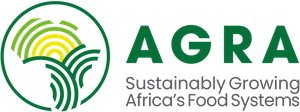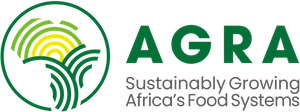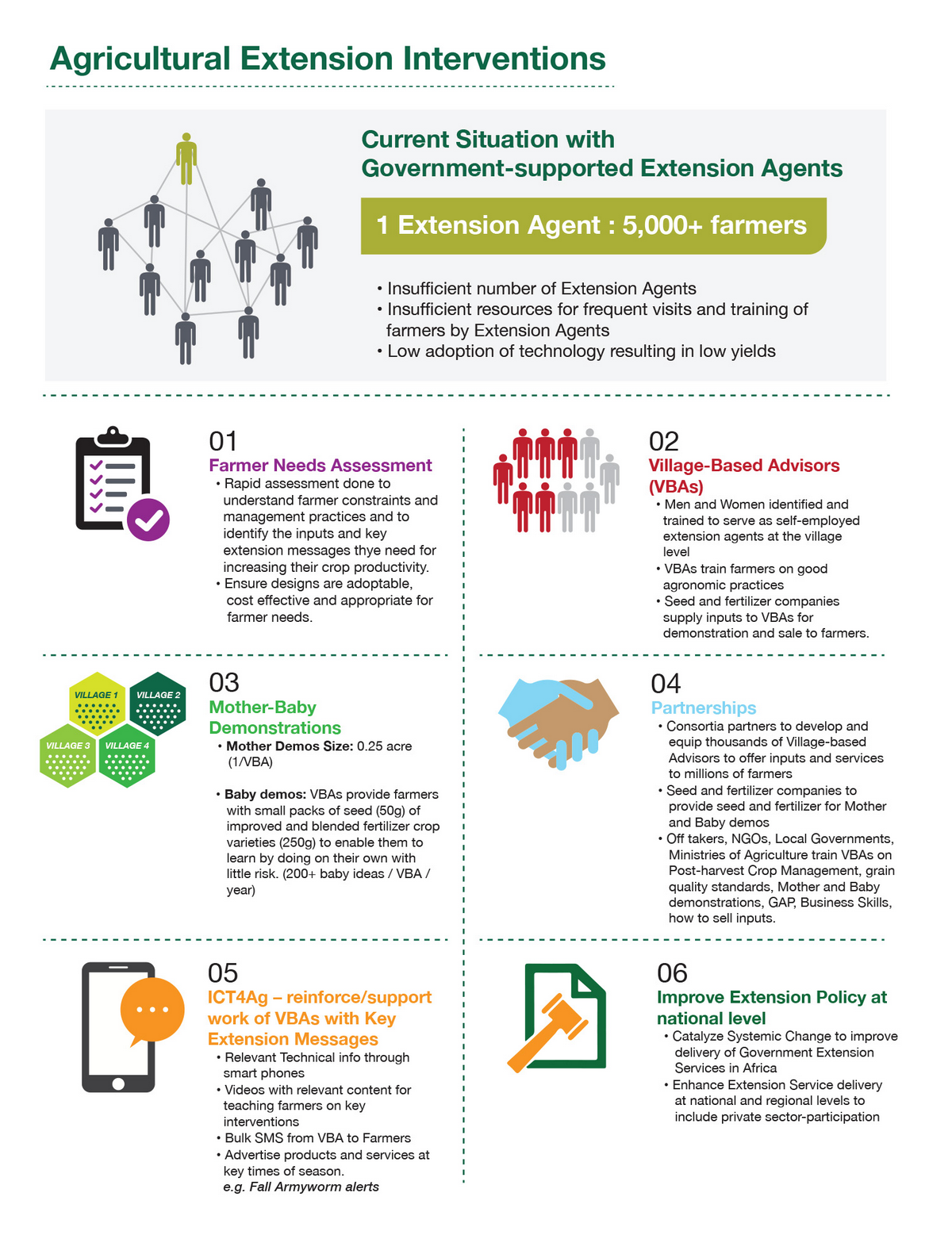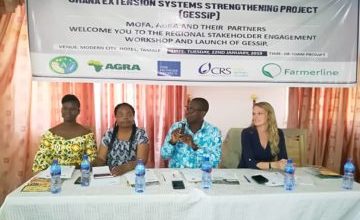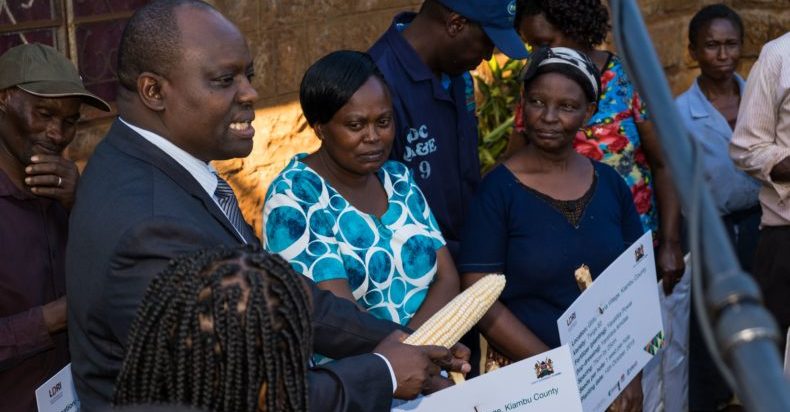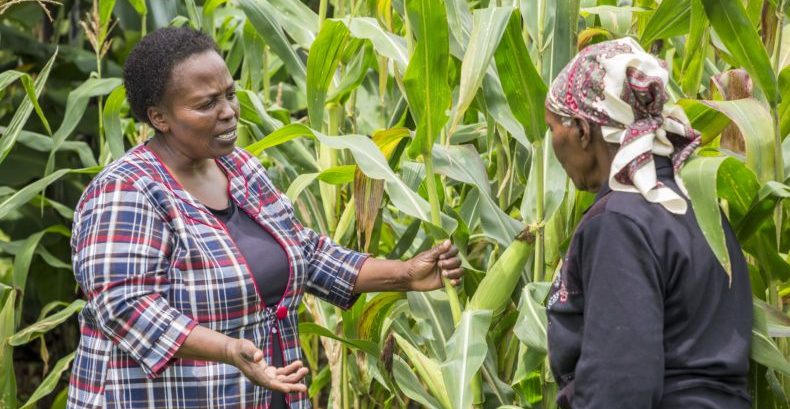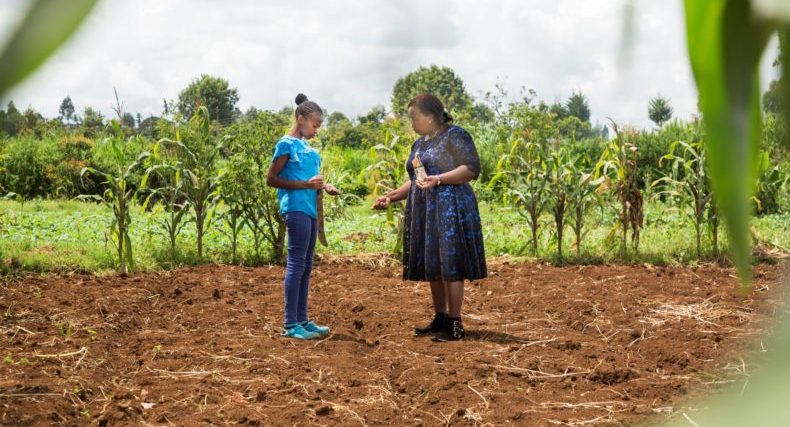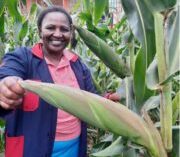Governments in Africa have already admitted that they lack sufficient numbers of extension agents and the resources to enable farm visits. In fact, the extension agent-to-farmer ratio on the continent commonly varies from 1:3,000 to 1:10,000.
The extension service providers are supposed to build capacities of farmers about the value of using improved seed, use of appropriate fertilizers and employing good agronomical practices. But due to lack of these services, crop productivity of smallholder farmers in most countries in sub-Saharan Africa is very low.
AGRA is already addressing this problem through enhancing capacity for agricultural systems, and through identification and training self-employed, village-based “agri-preneurs” or “advisors” (VBAs).
A VBA is a kind of “lead farmer” who is selected by Ministry of Agriculture extension agents together with farmers in his or her village, and should be an honest person who is trusted by the community.
Information and communication technology (ICT) applications (e.g., animated video) are also employed to assist in training VBAs, and help them convey key extension messages that are needed by farmers.
SMS messaging is used to advertise VBA services and reinforce the communication of key extension messages to reach millions of farmers by mobile phones.
The VBAs are then linked to input companies to promote seed of improved crop varieties and fertilizers together with good agricultural practices, and often become vendors of such inputs at the village level. This makes them the practical link between farmers and fertilizer and seed companies.
In order to support smallholder farmers on the ground, a quick assessment of farmers’ needs is done, and then extension agents and trained VBAs are deployed to advise them on how to modify their existing practices.
Through training in business development and support services, the capacity-building program has given rise to over 600 small and medium enterprises (SMEs) and agribusinesses that buy and process farmers’ produce.
Select achievements:
Since 2007 the capacity building program has contributed to a pool of young professionals in agriculture—1,100 postgraduate degree trained personnel (about 40% of these being women), who are developing solutions to smallholder farmer challenges in seeds, soils, and policy in Africa as a way of enhancing capacity for agricultural systems.
Through training in business development and support services, the capacity-building program has given rise to over 600 small and medium enterprises (SMEs) and agribusinesses that buy and process farmers’ produce.
Additionally, over 950 seed enterprise personnel from over 100 seed companies have been trained to improve both productivity and profits. Approximately 260 laboratory and field technicians, 4,900 extension agents, 2,780 fertilizer inspectors and over 110 seed companies have been equipped to do their work more efficiently, thus improving productivity.
AGRA has further increased the institutional capacities of 15 universities, NARS, and a few CGIAR centers in 13 countries in sub-Saharan Africa.

